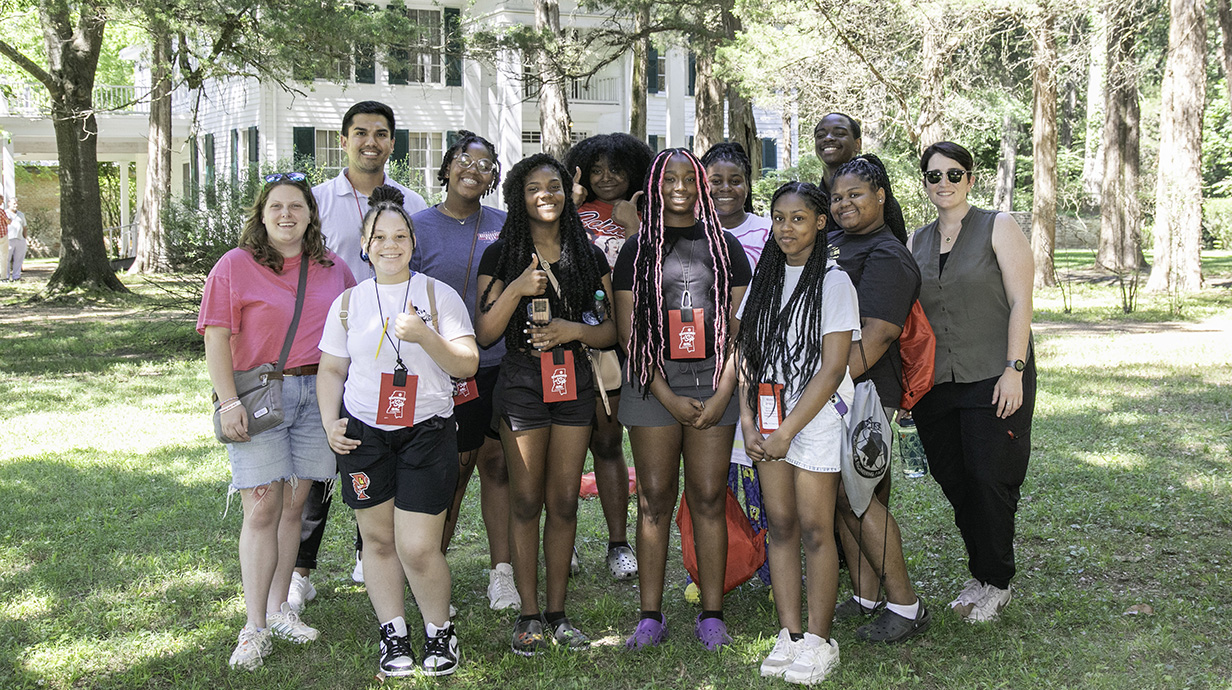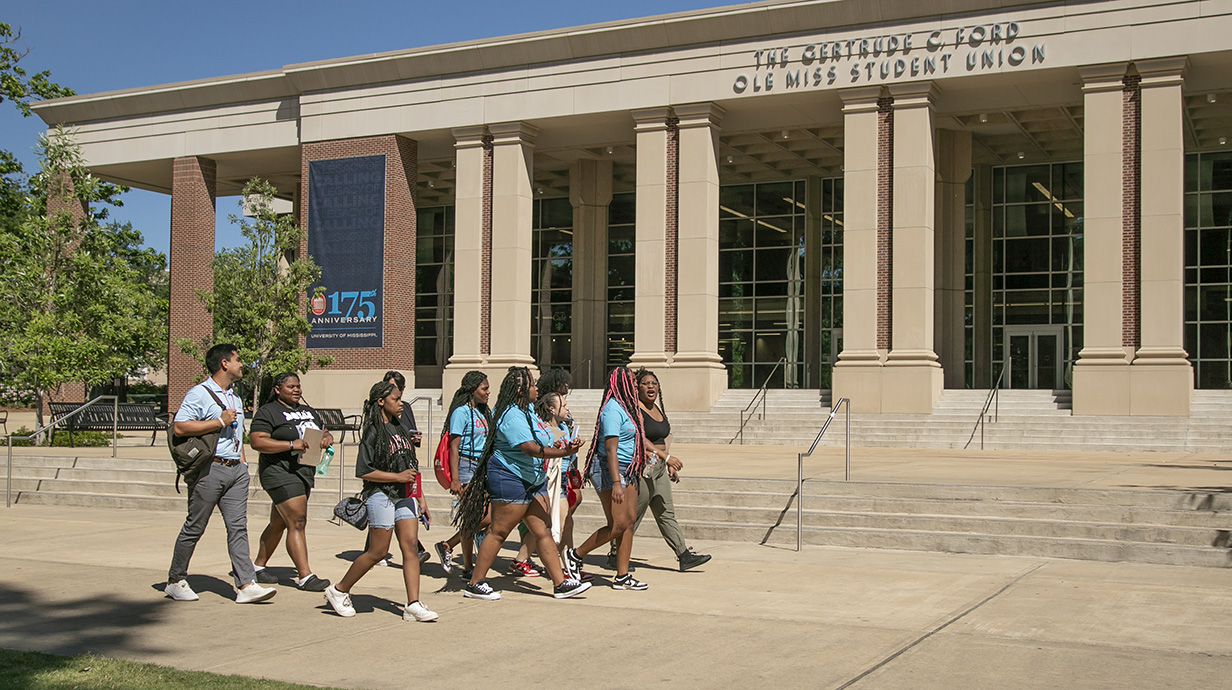High School Students Explore 'The Good Life' at Summer College Program
Experience encourages first-generation students to explore role of humanities and civic engagement
OXFORD, Miss. – The question of what makes a good life – a quandary that has intrigued philosophers, writers and academics for centuries – was the central theme for eight high school students in a University of Mississippi pilot program this summer.
The Good Life initiative, led by the Office of Pre-College Programs in partnership with the College of Liberal Arts and the Office of the Provost's Flagship First-Gen program, is designed to encourage rural and first-generation students to explore the role that humanities and civic engagement play in determining quality of life.
The program is an interdisciplinary endeavor, drawing perspectives from philosophy, English, history and other humanities disciplines. The goal was to get participants to think big.
"I think students are already asking these questions themselves," said Ashleen Williams, faculty coordinator and instructional assistant professor in the Office of the Provost. "Our goal is to empower them to think boldly, to wonder and to ponder the big questions and problems of our world.
"We want them to move beyond the notion of just getting a job to pay bills. Instead, we encourage them to think about how they can be the solution to creating a more creative and inspired future world."

Participants in the Good Life pilot summer program visit Rowan Oak, home of Nobel Prize-winning author William Faulkner. Submitted photo
Participants, who were nominated by their high schools, were Angel Collins, Alexia Floyd, Jamaria Jones, Precious Magee and Ar'Nesia Sacks, all of Madison Shannon Palmer High School in Marks; Angel Harris, of North Panola High School in Sardia; and Kaliyha Jenkins and Samantha Longstreet, of Coffeeville High School.
The students took part in discussions and activities that challenged their understanding of happiness, goal setting and living a well-rounded life.
They attended sessions led by the Center for Practical Ethics, toured the University Museum, examined the role of community engagement in improving quality of life and visited Rowan Oak, home of Nobel Prize-winning author William Faulkner.
"I think it's so important that we remember the critical nature of humanities," said Ethel Young Scurlock, dean of the Sally McDonnell Barksdale Honors College and associate professor of English and African American studies. "'We're developing citizens and scholars,' is what we say in the Honors College.
"We want people who think deeply about issues, people who are prepared to think about news, conduct research and find out the facts. We need those people to lead in government. We need those people to create beautiful art.
"We want science and industry to be advanced, but we want to know the meaning of it. We want to know how it impacts how we live our daily lives."
Scurlock led a discussion about how participants can help bring the good life to people in Mississippi.
"I had a really good time talking to them about the historic presence of African American physicians, and how those physicians worked not just for a good life for themselves, but how they worked to create a better Mississippi for others," she said.

Participants in the Good Life pilot summer program visit the Gertrude C. Ford Ole Miss Student Union. Submitted photo
"And as a springboard for discussing careers when we think about the good life, let's look at not just the impact for us, but how we can impact the ability of people beyond who we are, to live a good life, a great life."
Besides exploring the humanities and tackling big questions, the program offered students a chance to experience life on the Ole Miss campus. They lived in the residence halls and attended activities around campus each evening, interacting with students from other pre-college programs.
"One of our goals is that the students will have exposure to many careers and opportunities for studies outside of what they may have been traditionally taught about – doctor, lawyer, pharmacist perhaps," Williams said. "We look at what they want to study and all of the different ways they can be part of university life."
This was the first time Collins had ever visited a college campus. The experience, she said, has been fun and helped to make the idea of college seem a little more attainable.
"My family really wants me to go to college," she said. "This makes the idea of sitting in classes, giving presentations, a little easier."
Harris said the program made a lasting impact on her outlook.
"The Good Life program makes me feel like you can always keep going, you can always keep striving for greatness," she said.
The program was made possible by a grant from the Teagle Foundation, which works to support and strengthen liberal arts education. The foundation's Knowledge for Freedom initiative supports programs that invite underserved high school students to college to explore leading lives of purpose and civic responsibility.
The program operates on more than 30 campuses and combines a summer seminar for high school students with year-round college counseling.
Throughout the next school year, participants will have opportunities for mentoring and learning. They also have pledged to hold one other accountable for meeting their personal goals and continuing to ask the big questions.
"As the program continues to grow, we hope to cultivate a generation of students who value higher education, engage in meaningful conversations and work across differences to advance their communities," Williams said.
Top: Molly Pasco-Pranger, chair of the Department of Classics, talks to participants in the university's Good Life pilot summer program at the University Museum. Submitted photo
By
Staff Report
Campus
Office, Department or Center
Published
September 01, 2024
